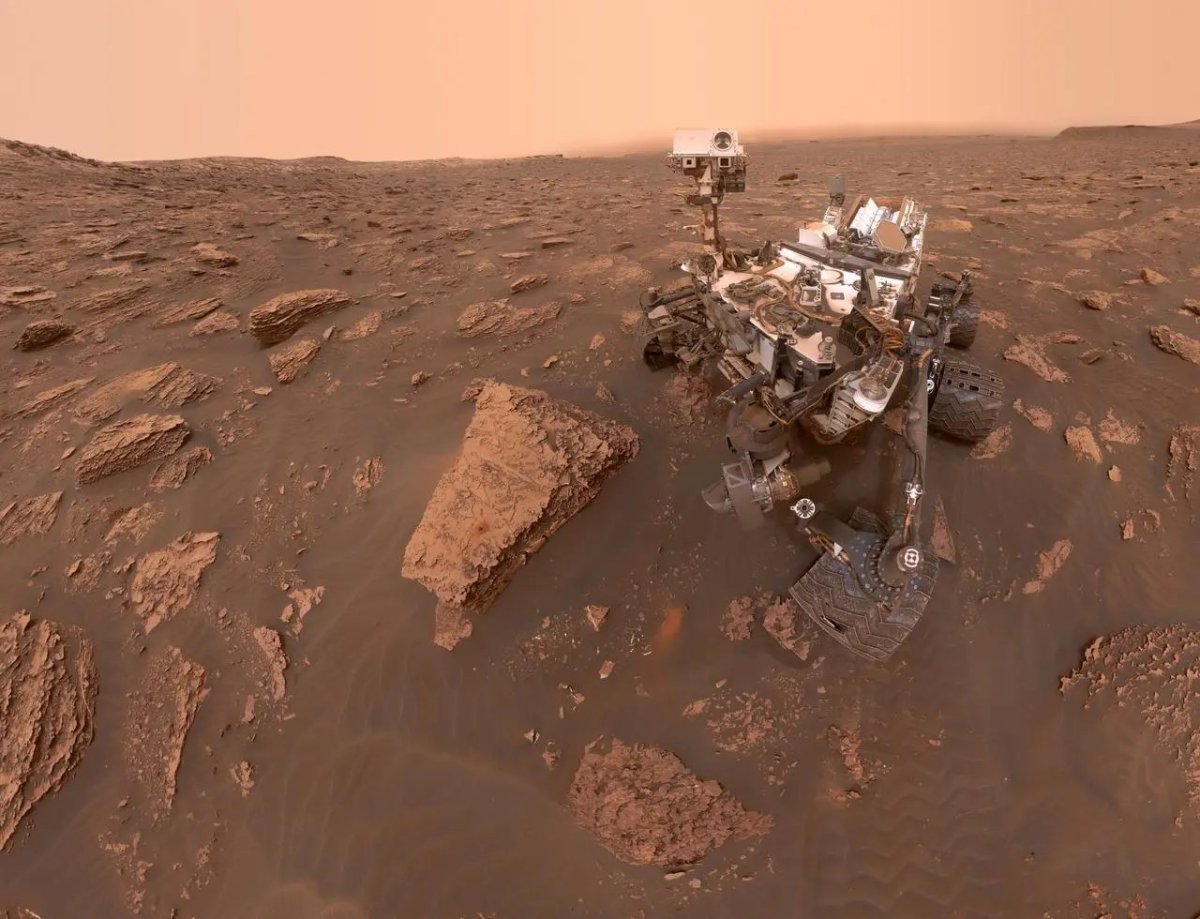Scientists could have solved a long-standing Martian thriller, supporting our endless quest to seek out indicators of life on the crimson planet—Why does Mars burp?
Lately, NASA’s Curiosity rover has detected various ranges of methane fuel in Mars’ environment. Whereas this would possibly sound unremarkable, this fluctuating belch and fart fuel has excited scientists as a result of—if its presence on Earth is something to go by—it might be proof of microbial life on the crimson planet.
Curiosity is the biggest and most succesful rover ever despatched to Mars, and it has been gathering knowledge since 2012. As a part of NASA’s Mars Science Laboratory Mission, the rover was despatched to reply a easy query: “Did Mars ever have the fitting environmental circumstances to help small life kinds?”
Due to this fact, the planet’s methane emissions provide an thrilling alternative to discover this query. However so as to take action, we’d like to have the ability to pattern them. And that may be a lot simpler mentioned than carried out.

NASA/JPL-Caltech/MSSS
“Understanding Mars’s methane variations has been highlighted by NASA’s Curiosity workforce as the subsequent key step in direction of determining the place it comes from,” John Ortiz, a graduate scholar at Los Alamos Nationwide Laboratory, mentioned in a press release. “There are a number of challenges related to assembly that aim, and an enormous one is figuring out what time of a given sol (Martian day) is finest for Curiosity to carry out an atmospheric sampling experiment.”
To raised predict these fluctuations, Ortiz and colleagues from throughout the U.S. used mathematical fashions to simulate these elusive emissions.
The workforce argues that the fuel more than likely originates underground, due to this fact it simulated the trail the fuel should take by means of the planet’s fractured rock to the floor.
Additionally they take into account how adjustments in temperature can have an effect on how a lot of the methane will stick with pores within the floor rock. And, from these fashions, they have been in a position to calculate the very best time of day to gather methane samples.
“Our work suggests a number of key time home windows for Curiosity to gather knowledge,” Ortiz mentioned. “We expect these provide the very best probability of constraining the timing of methane fluctuations, and (hopefully) down the road bringing us nearer to understanding the place it comes from on Mars.”
In a research printed within the journal JGR Planets, the workforce concluded that the very best time to gather this knowledge is previous to dawn through the upcoming northern summer season interval, which lies inside the candidate time from the Curiosity rover’s subsequent sampling marketing campaign.
Do you have got a tip on a science story that Newsweek needs to be masking? Do you have got a query about Mars? Tell us by way of science@newsweek.com.
Unusual Data
Newsweek is dedicated to difficult typical knowledge and discovering connections within the seek for frequent floor.
Newsweek is dedicated to difficult typical knowledge and discovering connections within the seek for frequent floor.